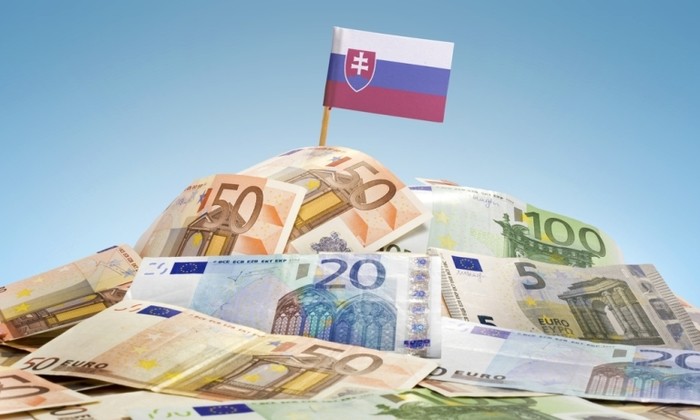Holding the record as the nation with the highest number of castles and chateaux per capita, it is blatantly obvious that those in the Middle Ages knew that Slovakia was the perfect place to establish a stronghold. Interestingly enough, not much has changed in that respect. In today’s post-communist rule, building a company in this eastern European country can prove to be one of the most intelligent and adventitious business decisions you will ever make.
As the geographical midpoint of Europe, Slovakia houses over 5.4 million people scattered among its 79 districts within eight self-governing regions. The country’s residents enjoy a thriving economy with higher than average incomes and a competitive rating on the Human Development Index. Additionally, Slovakia currently has a nominal GDP of $87 billion; a number that is expected to grow to just over $116 billion by the year 2020. In other words, it pays to be a business owner in Slovakia.
Automobile production is one of the best examples of corporate success coming from the country, holding its position as the 6th largest producer of cars per 1,000 people across the globe. Therefore, it comes as no surprise that foreign investors are flocking to set up shop within Slovakia’s borders and reap the benefits.
1. A Strategic Geographical Location
Wonderfully located smack dab in the middle of Central and Eastern Europe, Slovakians enjoy the political and economic stability that surrounds them by sharing national borders with the countries of the Czech Republic, Austria, Poland, Ukraine, and Hungary. This central location makes Slovakia an ideal country for imports and exports across the continent, particularly from the western portion of the country where infrastructure and transportation networks are the most advanced. Bratislava, the nation's capital, is nestled within this region making it a practical and convenient location for corporate headquarters.
Politically speaking, Slovakia enjoys a membership in NATO, the European Union, the United Nations, and the WTO, providing excellent working relationships with most nations across the continent. Also, as a member of the Schengen Area, travelers are welcome to come and go from Slovakia without having to show any identification or suffer through a lengthy boarder-crossing process.
 shutterstock
shutterstock
2. Incentives to Foreign Investors
Slovakia is currently very much involved in projects of economic and financial integration set up by the European Union and received praise from the European Central Banks. Additionally, Moody’s has given Slovakian government bonds a higher than average rating of A2, making these investments competitively profitable. Representing most of the banks within the country, branches or subsidiaries of EU banks are taking advantage of Slovakia’s productive economy and thus, make up 87% of the assets in the entire banking system.
The good news for foreigners is that there are no restrictions on who can create a corporate entity within Slovakia, meaning non-citizens can legally establish a business within its borders. Crucial to the protection of foreign investments, these new business owners have the ability to take advantage of international arbitration, mutual protection of investments, and access to civil legal proceedings should they be required.
Labor productivity has also increased in recent years with a 15% from 2005 to 2013. This is due to Slovakia’s highly educated population, with 77% of the countries citizens possessing an upper-secondary degree in a wide array of specialties. Having a healthy labor market is a key factor in determining where to establish a company, as the need to relocate workers from other countries can be quite the downfall in company progress both in industrial and financial terms. As a whole, Slovakian workers are known for their flexible nature to the ever evolving ideas and development of the corporate world, and widely accept various business and management styles. Therefore, all Slovakian businesses can enjoy the convenience of a powerful local workforce.
Thankfully, the automobile production market has been thriving within the borders of Slovakia for years, positively affecting the nation's economy and making it a little known hot spot for foreign corporations to set up shop. US Steel, Dell, IBM, Amazon, and other US-based Global companies have already taken advantage of the investment incentives in Slovakia, with other successful foreign producers such as Germany, Japan, and the United Kingdom following suit. With many diverse ventures to fall back on, Slovakia is a thriving country for both businesses and citizens alike.
3. Whitelisted Jurisdiction
In the modern world, agreements on the exchange of information are just as crucial as agreements on substantial investments and trade. To qualify for this listing, a country must comply with the information requirements listed in Article 1 of the Italian Ministerial Decree of September 4, 1996. The benefit of being a member of the Whitelist is that an entity resident in a qualifying country may enjoy no withholding tax or interest payments on bonds issued by Italian operates, allowing investors to take advantage of this financial benefit.
4. Sevral Bi-lateral Agreements on Double Taxation Avoidance
A double tax treaty is beneficial to investors because it allows taxes paid in one country to be offset by the fees charged in another. As a part of these bilateral agreements royalties, dividends, and capital gains may be exempt from taxation or qualify for reduced tax rates. Slovakia has double tax treaties with dozens of European countries, including Switzerland, Poland, Barbados, Kuwait, and Armenia. This mutual tax benefit is particularly important for those companies that have subsidiaries in multiple European countries. These agreements allow companies to stretch their operations far and wide across Europe without seeing financial penalties.
5. No Tax on Outgoing Dividends
A simplified tax system is enjoyed by corporations with their base in Slovakia due to the tax reform of 2000 which created favorable circumstances for foreign investments. Since the reform, companies such as Dell, HP, and Sony have enjoyed a corporate tax rate of only 22%. Companies must now pay a fixed amount of tax that does not include dividends received from abroad. This system allows anyone who establishes their business in Slovakia to take advantage of a significant tax benefit that they would not otherwise receive if they established business elsewhere. Capital gains are taxed at 22% and in some cases, capital losses can be deducted or carried forward. Additionally, when there is no surtax, there is a small alternative minimum tax. In contrast, royalties paid to a nonresident will be taxed at 19% withholding unless there is an exemption.
These tax benefits mean business owners can be foreign investors from either the United States or Western Europe and enjoy the ability to transfer dividends to their home country’s bank account without having to cut a check to the tax collector of the Slovakian government.

6. Great Place to Establish a Structuring or Holding Company
According to Act 595/2003 Coll. on Income Tax of the Slovak Republic, the object of taxation is not in shares or profits of the company to be distributed among persons, implying that dividends are tax-exempt if they are paid to a shareholder. Act 595/2003 also suggests that the Slovak company pays dividends to its shareholders, regardless of their personal citizenship status or current country of residence, allowing these individuals to collect their earned profits without having to engage in unnecessary red tape.
The EC Council Directive 2011/96/EU, better known as the Parent-Subsidiary Directive, applies a universal taxation system between holding companies and subsidiaries of member states. For this rule to apply, the parent company must have a minimum holding of 10% of the capital of a subsidiary company within another EU member state. For example, a limited liability company can receive dividends from a subsidiary in another EU country and distribute it to yet another limited partnership because these associations can receive tax-free dividends from a corporation. Opening a limited partnership as a holding company in Slovakia is possible and, if done correctly, may provide generous financial advantages.
In summary, there are paramount advantages to establishing a business within Slovakia. Aside from a convenient physical location, generous support from Slovakian government and other European nations, foreign investors enjoy the security of a thriving local economy. You, similar to royalty of the middle ages, can experience all Slovakia has to offer as the perfect place to establish, grow, and maintain your business.
